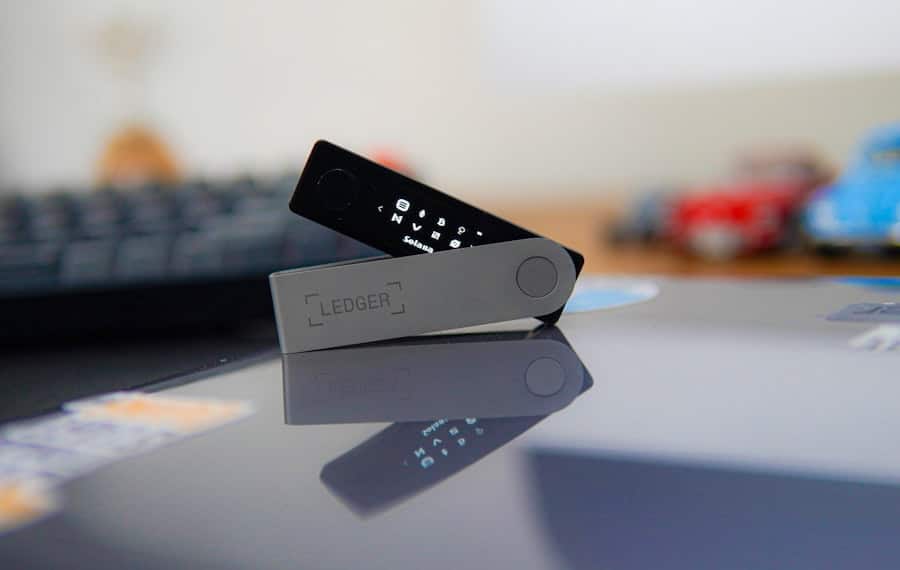Artificial Intelligence (AI) and Blockchain are two of the most transformative technologies of the 21st century, each with the potential to revolutionize various sectors, including finance, healthcare, and supply chain management. AI refers to the simulation of human intelligence processes by machines, particularly computer systems, which can perform tasks such as learning, reasoning, and problem-solving. On the other hand, Blockchain is a decentralized digital ledger technology that records transactions across multiple computers in a way that ensures the security and transparency of data.
The convergence of these two technologies is creating new paradigms in how organizations conduct audits, manage data integrity, and ensure compliance. The integration of AI and Blockchain is particularly significant in the field of auditing, where accuracy, transparency, and efficiency are paramount. Traditional auditing processes often involve extensive manual checks and reconciliations, which can be time-consuming and prone to human error.
By leveraging AI’s capabilities in data analysis and pattern recognition alongside Blockchain’s immutable record-keeping, organizations can enhance their auditing processes. This synergy not only streamlines operations but also fosters greater trust among stakeholders by providing a clear and verifiable trail of transactions.
Key Takeaways
- AI and blockchain are two innovative technologies that are revolutionizing the auditing industry.
- AI plays a crucial role in auditing by automating repetitive tasks, analyzing large volumes of data, and detecting anomalies or patterns.
- Blockchain technology ensures transparency, security, and immutability of audit trails, making it an ideal tool for auditing.
- When AI and blockchain work together, they create a transparent and efficient auditing process, reducing the risk of fraud and errors.
- The collaboration of AI and blockchain in auditing brings benefits such as improved accuracy, real-time monitoring, and cost savings.
The Role of AI in Auditing
Automating Routine Tasks and Enhancing Analytical Capabilities
AI plays a vital role in modern auditing by automating routine tasks and enhancing the analytical capabilities of auditors. One of the primary applications of AI in auditing is through the use of machine learning algorithms that can analyze vast amounts of financial data quickly and accurately.
Streamlining Audit Processes and Focusing on High-Risk Areas
This capability allows auditors to focus their efforts on high-risk areas rather than spending excessive time on low-risk transactions. Moreover, AI-driven tools can facilitate continuous auditing, a process that enables organizations to monitor their financial activities in real-time. By employing AI algorithms that assess data as it is generated, auditors can provide timely insights and recommendations to management.
Improving Financial Reporting and Compliance
This proactive approach not only enhances the quality of audits but also helps organizations to address potential issues before they escalate into significant problems. The ability to conduct audits more frequently and with greater precision ultimately leads to improved financial reporting and compliance.
The Role of Blockchain in Auditing

Blockchain technology offers a unique solution to some of the inherent challenges faced in traditional auditing practices. Its decentralized nature ensures that all participants in a network have access to the same information, which significantly reduces the risk of data manipulation or fraud. Each transaction recorded on a Blockchain is time-stamped and linked to previous transactions, creating an immutable chain of records that can be easily verified by auditors.
This transparency is crucial for building trust among stakeholders and ensuring compliance with regulatory requirements. In addition to enhancing transparency, Blockchain also streamlines the audit process by providing a single source of truth for all transactions. Auditors can access real-time data directly from the Blockchain, eliminating the need for extensive data reconciliation processes that are often time-consuming and error-prone.
Furthermore, smart contracts—self-executing contracts with the terms of the agreement directly written into code—can automate various aspects of compliance and reporting. This automation not only reduces the workload for auditors but also minimizes the potential for human error.
How AI and Blockchain Work Together for Transparent Auditing
The collaboration between AI and Blockchain creates a powerful framework for transparent auditing that leverages the strengths of both technologies. When integrated, AI can analyze data stored on a Blockchain to identify trends, anomalies, and insights that would be difficult to discern through traditional methods. For example, an AI system could analyze transaction patterns on a Blockchain to detect unusual spikes in activity that may warrant further investigation.
Moreover, the combination of AI’s predictive analytics capabilities with Blockchain’s secure data storage allows for enhanced risk assessment. Auditors can utilize AI algorithms to forecast potential risks based on historical data while relying on Blockchain’s immutable records to validate their findings. This dual approach not only improves the accuracy of audits but also provides auditors with a comprehensive view of an organization’s financial health.
Benefits of AI and Blockchain Collaboration in Auditing
The collaboration between AI and Blockchain in auditing offers numerous benefits that can significantly enhance the efficiency and effectiveness of audit processes. One of the most notable advantages is increased accuracy. By automating data analysis and leveraging Blockchain’s secure record-keeping, organizations can reduce the likelihood of errors that often occur during manual audits.
This heightened accuracy leads to more reliable financial reporting and greater confidence among stakeholders. Additionally, the integration of these technologies can lead to substantial cost savings for organizations. Traditional auditing methods often require significant resources in terms of time and personnel.
However, by utilizing AI to automate routine tasks and Blockchain to streamline data access, organizations can reduce their audit costs while maintaining high standards of quality. Furthermore, this collaboration enables auditors to focus on more strategic tasks, such as risk assessment and advisory services, rather than getting bogged down in repetitive data checks.
Challenges and Limitations of AI and Blockchain in Auditing

Despite the promising potential of AI and Blockchain in auditing, several challenges and limitations must be addressed for successful implementation. One significant challenge is the need for skilled professionals who are proficient in both technologies. The rapid evolution of AI and Blockchain means that many auditors may lack the necessary training or expertise to effectively utilize these tools in their work.
Organizations must invest in training programs to equip their audit teams with the skills required to navigate this new landscape. Another limitation is related to data privacy and security concerns. While Blockchain provides enhanced security features, it also raises questions about how sensitive information is stored and accessed.
Organizations must ensure that they comply with data protection regulations while leveraging these technologies for auditing purposes. Additionally, integrating AI systems with existing IT infrastructure can be complex and may require significant investment in technology upgrades.
Case Studies of Successful AI and Blockchain Auditing Collaborations
Several organizations have begun to explore the integration of AI and Blockchain in their auditing processes with promising results. One notable example is Deloitte’s use of Blockchain technology for auditing purposes within its financial services division. By implementing a Blockchain-based system for transaction verification, Deloitte has been able to enhance transparency and reduce the time required for audits significantly.
The firm has reported improved accuracy in its audits due to real-time access to transaction data stored on the Blockchain. Another case study involves PwC’s collaboration with various clients to implement AI-driven analytics tools alongside Blockchain technology for auditing purposes. By combining these technologies, PwC has been able to provide clients with deeper insights into their financial operations while ensuring compliance with regulatory standards.
The Future of AI and Blockchain in Auditing
Looking ahead, the future of AI and Blockchain in auditing appears promising as organizations continue to seek innovative solutions to enhance their audit processes. As these technologies evolve, we can expect further advancements in their integration, leading to even more sophisticated auditing tools that leverage real-time data analysis and secure record-keeping capabilities. The ongoing development of regulatory frameworks surrounding these technologies will also play a crucial role in shaping their adoption within the auditing profession.
Moreover, as more organizations recognize the value of transparency and accountability in their financial reporting, the demand for AI and Blockchain solutions will likely increase. This trend may lead to greater collaboration between technology providers, auditors, and regulatory bodies to establish best practices for implementing these technologies effectively. Ultimately, the combination of AI and Blockchain has the potential to redefine auditing standards, making them more efficient, accurate, and transparent than ever before.
In a recent article on Enicomp, the RankAtom Review discusses a game-changing keyword research tool that can revolutionize digital marketing strategies. This tool could be a valuable asset for companies looking to improve their online visibility and reach a wider audience. The integration of AI and blockchain technology in this tool could potentially enhance its capabilities and provide more accurate and transparent results. To learn more about this innovative tool, check out the RankAtom Review article.
FAQs
What is AI and Blockchain collaboration for transparent auditing?
AI and Blockchain collaboration for transparent auditing refers to the use of artificial intelligence and blockchain technology to enhance the transparency and accuracy of auditing processes. This collaboration allows for the automation of auditing tasks and the secure recording of audit trails on a decentralized and tamper-proof ledger.
How does AI contribute to transparent auditing?
AI contributes to transparent auditing by automating data analysis, identifying patterns and anomalies, and providing real-time insights into financial transactions. AI can also be used to streamline the auditing process, reduce human error, and improve the overall accuracy of audits.
How does Blockchain contribute to transparent auditing?
Blockchain contributes to transparent auditing by providing a secure and immutable ledger for recording audit trails. This technology ensures that audit records are tamper-proof and transparent, allowing for greater trust and accountability in the auditing process.
What are the benefits of AI and Blockchain collaboration for transparent auditing?
The benefits of AI and Blockchain collaboration for transparent auditing include increased efficiency, improved accuracy, enhanced transparency, reduced fraud, and greater trust in audit processes. This collaboration also enables real-time auditing and the ability to track and verify transactions in a secure and decentralized manner.
What are some real-world applications of AI and Blockchain collaboration for transparent auditing?
Real-world applications of AI and Blockchain collaboration for transparent auditing include financial auditing, supply chain auditing, healthcare auditing, and regulatory compliance auditing. These applications leverage the combined capabilities of AI and Blockchain to improve the integrity and reliability of auditing processes.

